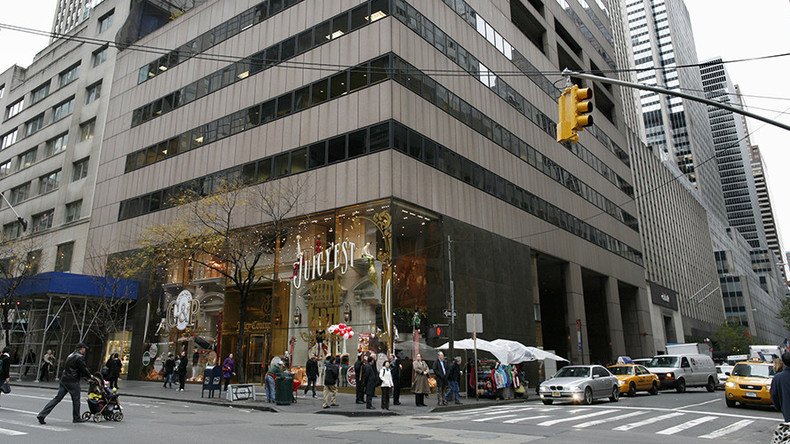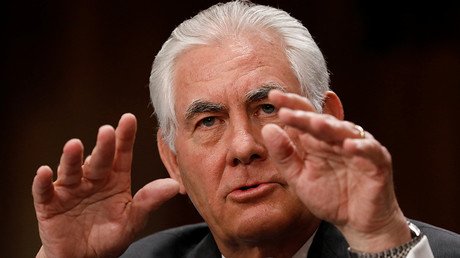Jury finds Iran-linked office tower can be seized by US govt

A New York jury has concluded that a tower located in Manhattan can be seized by the US government. The nonprofit organization that owns the building was determined to be in violation of US sanctions against Iran.
The Alavi foundation, the company which is a majority owner of the tower, is accused of concealing the knowledge that its minority owner and partner company, Assa Corp, was a front for Iran, according to Reuters.
Acting US Attorney Joon H. Kim said that “for over a decade, hiding in plain sight, this 36-story Manhattan office tower secretly served as a front for the Iranian government and as a gateway for millions of dollars to be funneled to Iran in clear violation of US sanctions laws. In this trial, 650 Fifth Avenue’s secret was laid bare for all to see, and today’s jury verdict affirms what we have been alleging since 2008: that through all the efforts to sanction and isolate Iran, a state sponsor of terrorism, the owners of 650 Fifth Avenue gave the Iranian government a critical foothold in the very heart of Manhattan through which Iran successfully circumvented US economic sanctions,” a Department of Justice press release stated.
The jury said that the US government had confirmed that the property was traceable, or involved in money laundering. The government wanted to seize the building, which may be worth close to $1 billion, in pursuance of benefiting people with legal judgments against Iran in relation to bombings or other attacks, Reuters reported.
Back in 1989, Alavi proceeded into a partnership with Iran’s state-controlled Melli Bank. A majority of the building was owned by Alavi, and Melli owned the rest through a subsidiary called Assa.The case turned into a question as to whether Alavi knew that Assa was still owned by Melli Bank, which would violate sanctions the US put in place against Iran in 1995.
Government lawyers argued that Alavi was aware, but continued to distribute rental income to Assa despite the sanctions. The lawyers believe Alavi also tried concealing its ownership from authorities in the US, according to Reuters.
Founded in 1973, Alavi was initially known as the Pahlavi Foundation, which was founded by the then-Shah of Iran, Mohammad Reza Pahlavi. The organization describes its mission as promoting the study of Islamic and Persian cultures in the US. At the same time, it funds free clinics and schools, Reuters reported.
#Trump promotes '#Iran funding #ISIS' canard in #SaudiArabia & #Israel [VIDEO] https://t.co/MJS8e308FV@NewswithEd@JimJatras
— RT America (@RT_America) May 23, 2017
The tower was initially constructed at the request of the Shah in 1978 as a source of income, Reuters reported. After Iran’s new government took over power following the Iranian revolution in 1979, they replaced the company’s board of directors.
A former Brooklyn federal judge, who represented Alavi, made the argument that the foundation was led to believe that Melli Bank had been sold before the 1995 sanctions went into effect.
The acting US Attorney commented on the seriousness of the jury’s final decision.
“The Jury’s verdict finding forfeitable a building valued at over $500 million dollars, as well as other real estate and funds, represents the largest civil forfeiture jury verdict and the largest terrorism related civil forfeiture in US history,” Kim said, according to the DOJ press release.














